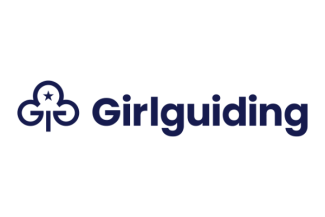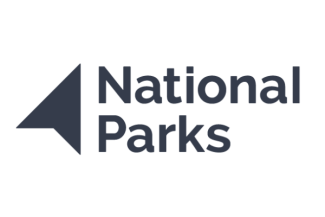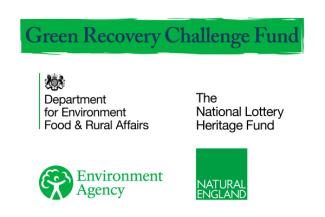Introduction
The first Generation Green project, which ran for 16 months in 2021-22, connected young people to nature, created jobs and saved jobs, and helped build an aspirant workforce for a green recovery.
Through new jobs, training, volunteering roles, residentials and outdoor and online learning experiences, the project provided more than 115,000 opportunities to connect young people to nature – many for the first time – and to cultivate a sense of care for the natural environment.

Celebrating our impact
Hear from the people involved in this ground-breaking project - the Access Unlimited coalition partners, volunteers, apprentices, charities, groups, teachers and thousands of young people who have been connected to nature by the myriad of opportunities delivered across England.
You can download the Generation Green celebration and impact report, or watch our video.
Why was the project needed?
The environment workforce is one of least diverse workforces in England.
It has never been more important to support young people’s routes into employment. Young people from deprived areas, BAME groups and disadvantaged backgrounds have fewer opportunities to experience nature and the outdoors at an early age, affecting their engagement with the natural environment in later life.
The Generation Green project enabled us to support jobs, placements, apprenticeships and volunteering.
Connections to nature improve wellbeing.
We know there are five things that help us connect better to nature and maximise these wellbeing benefits, with thanks to the Nature Connectedness Research Group at University of Derby. This project had a specific remit to look at ways to respond to these challenges.
Connecting to nature logos

Physical contact with the natural world

Finding an emotional bond with, and love for, nature

Taking time to appreciate the beauty of nature

Thinking about the meaning and signs of nature

Showing compassion and care for nature
How did the project help?
How did the project help?
Generation Green supported thousands of young people.
How the project helped
Who benefited from the project?
While the project delivered national reach and benefited young people aged 7 years and upwards, the primary target group was young people aged 14 to 26 years from the North, Midlands, and coastal and deprived urban areas.
At the very core of these are young people that are traditionally less likely – due to social, economic and cultural factors – to connect with nature, or engage with nature and nature preservation/conservation.
Focusing on wellbeing
Focusing on wellbeing
Hundreds of young people enjoyed fully funded visits to connect with nature at a YHA youth hostel as part of the Generation Green project.
Follow a primary school on their trip to YHA Langdale as they combined nature-based activities with ways to develop mindfulness skills.
Building self-confidence
Building self-confidence
As we navigated our way out of lockdown in spring 2021, The Outward Bound Trust invited young people to an Adventure Day. Their primary aim: helping young people to believe in themselves.
Tori went on an Adventure Day funded by Generation Green. This is her story.
Looking after the environment
Looking after the environment
Scouts helped thousands of young people to make a positive impact in their community. Their programme aimed to ultimately create 4,000 Green Champions.
Delivered in schools, parks and local meeting places, sessions ran by Green Volunteers helped young people to understand more about their environment.
Lasting effects
Pupils at Caldershaw Primary School have been improving habitats for birds, bugs and bees in their school grounds.
Developing outdoor leaders
Developing outdoor leaders
Through bursaries from the Generation Green project, Girlguiding supported their members to develop their skills to lead walking expeditions.
They offered different qualifications for different types of walking - from the basics of map reading to walking on more advanced terrain.
Overcoming barriers
Overcoming barriers
Through day visits, residentials and online courses, the Field Studies Council offered first-hand experiences to inspire young people.
Generation Green funding enabled them to support many children to overcome barriers so they could experience the outdoors.
Supporting career development
Supporting career development
Career development training was available to all apprentices, trainees, students, and any other (youth) trainees and ambassadors.
Hundreds of skilled volunteering roles were also available as part of the project, as well as micro-volunteering and self-guided learning.
Stepping stones
Volunteers from the one of England's National Parks have secured exciting new ‘green’ jobs thanks to Generation Green.
Project partners
Who ran the project?
Generation Green was the first project to be delivered by the Access Unlimited coalition. The coalition comprises YHA (England & Wales) – who hosted the project on behalf of the partners – The Outward Bound Trust, Scouts, Girlguiding, Field Studies Council and the 10 English National Parks.
The project capitalised on the coalition partners' combined reach of more than two million young people.
Project funding
How was the project funded?
Generation Green was funded by the Government's Green Recovery Challenge Fund.
The fund was developed by Defra and its Arm's-Length Bodies. It is being delivered by The National Lottery Heritage Fund in partnership with Natural England, the Environment Agency and Forestry Commission.






